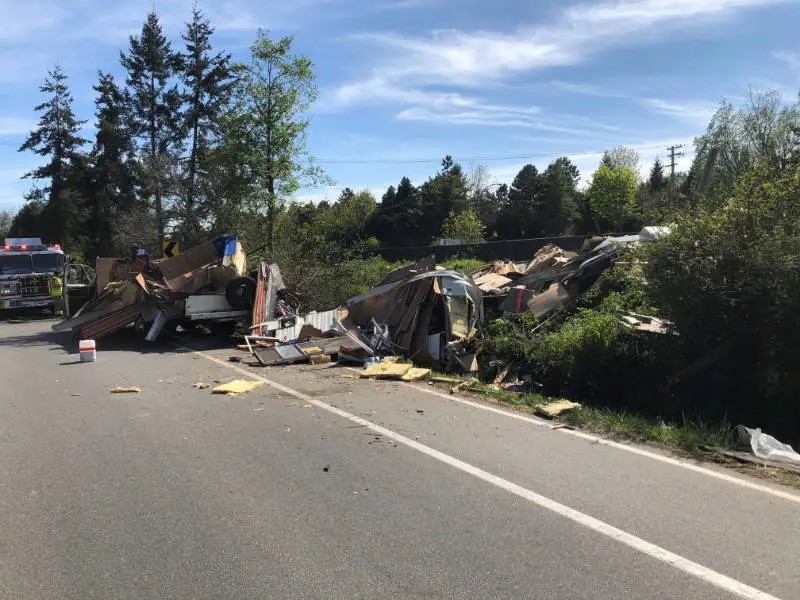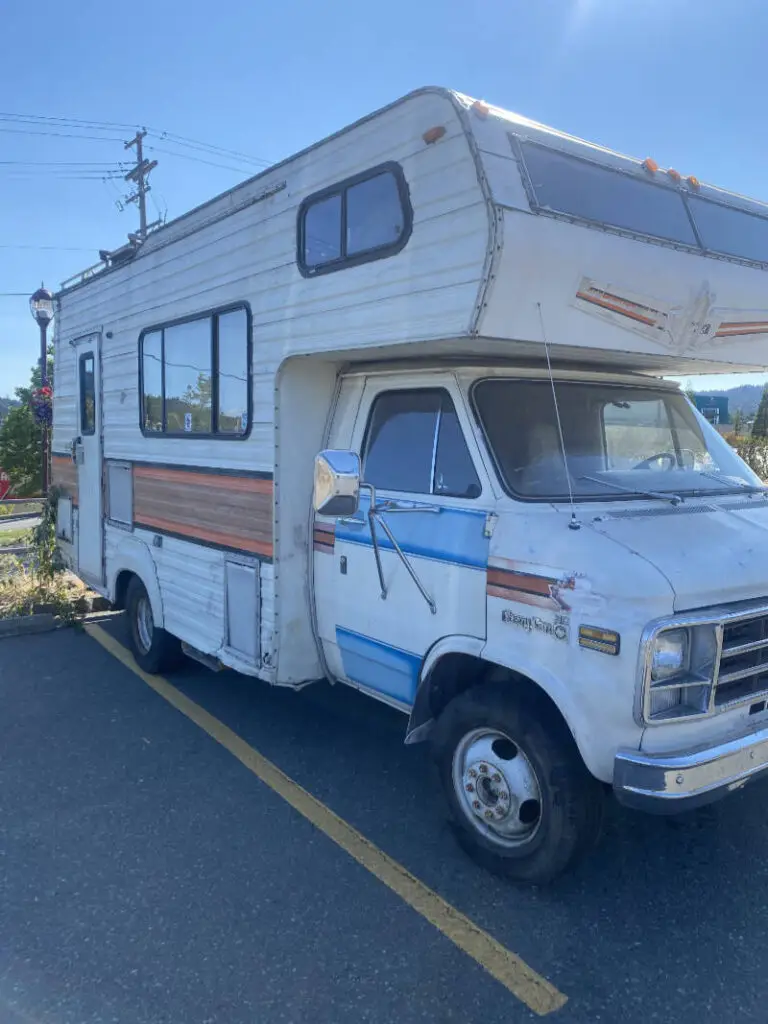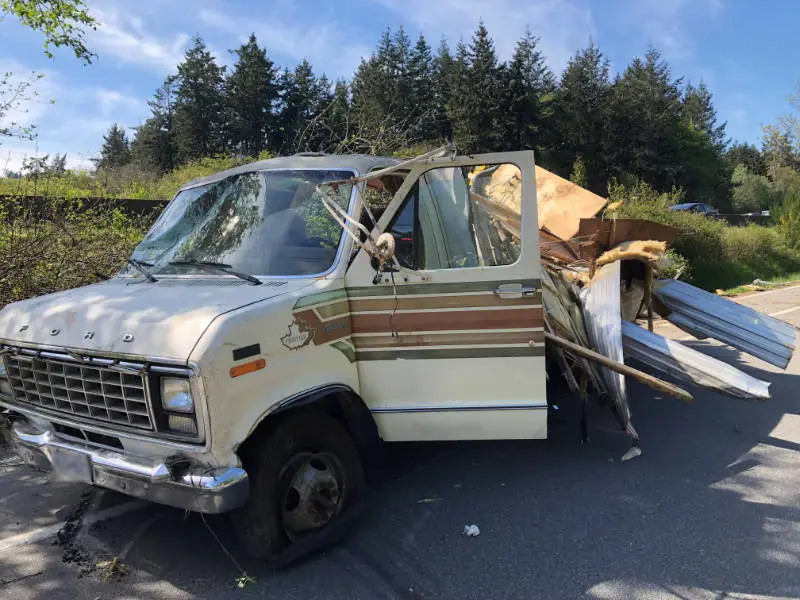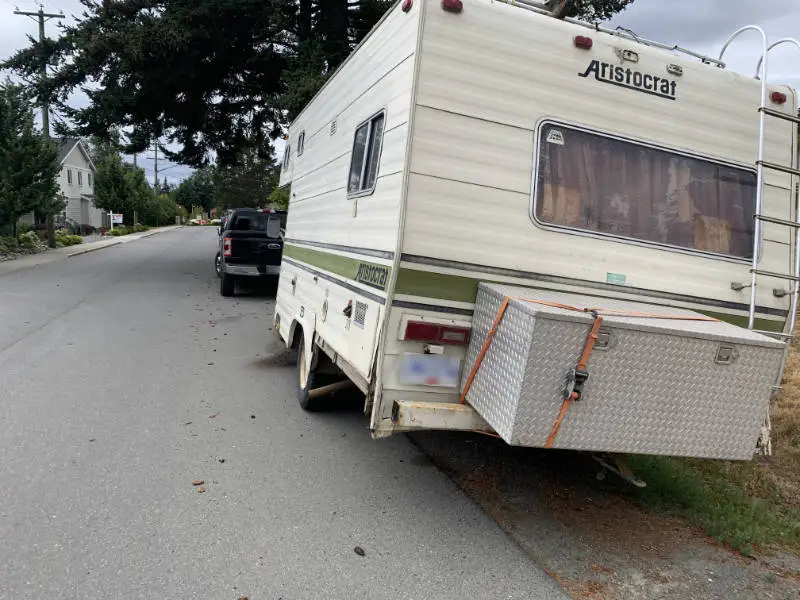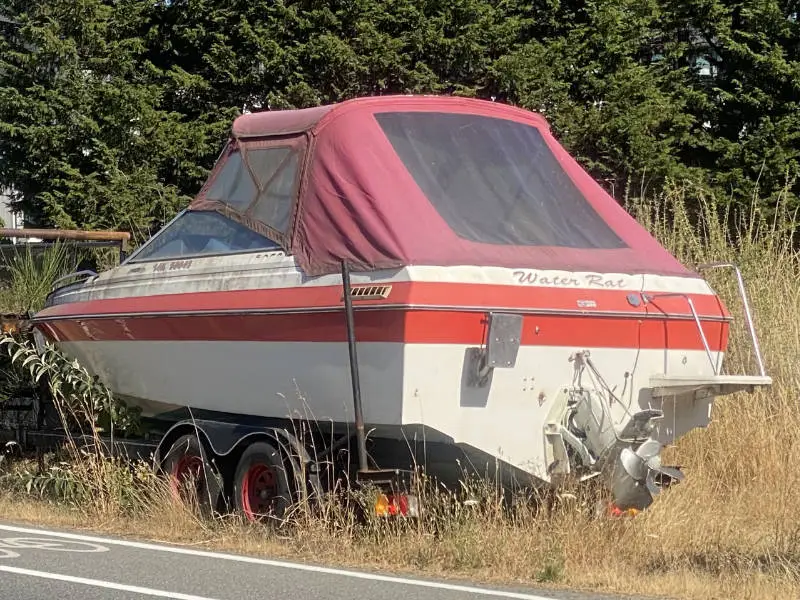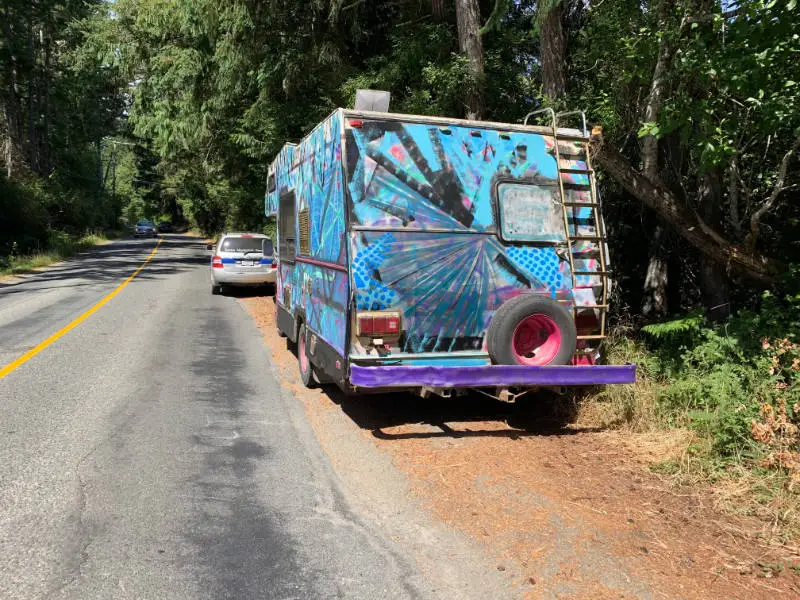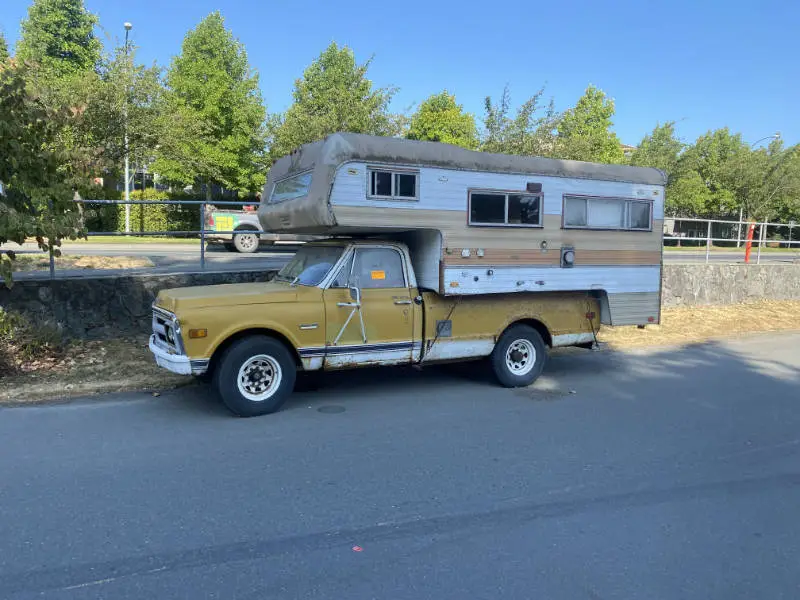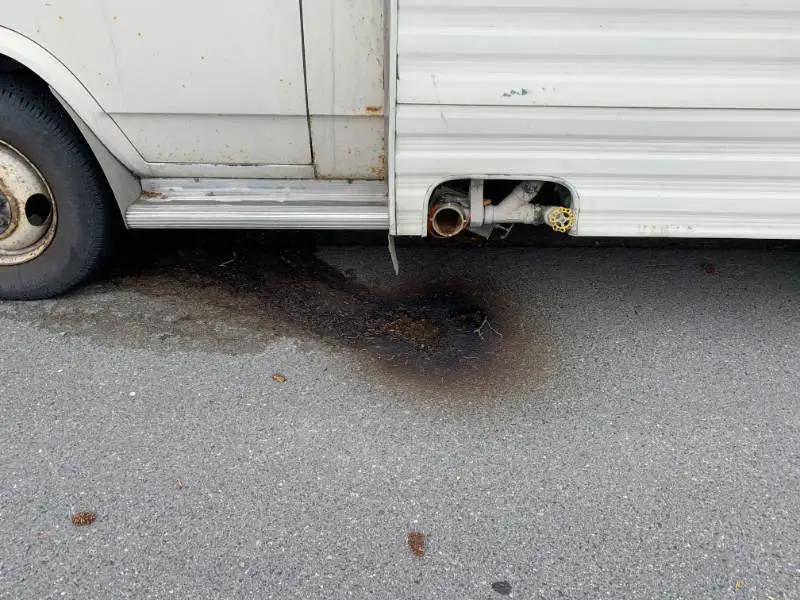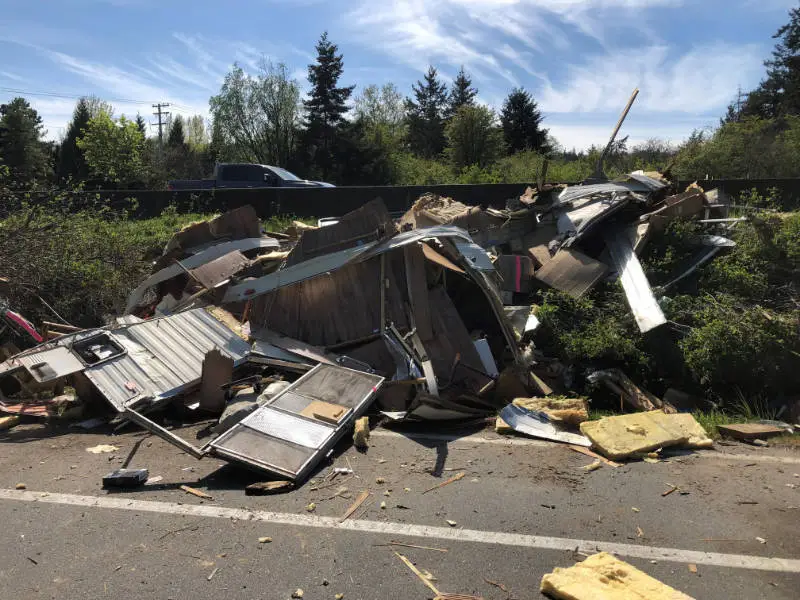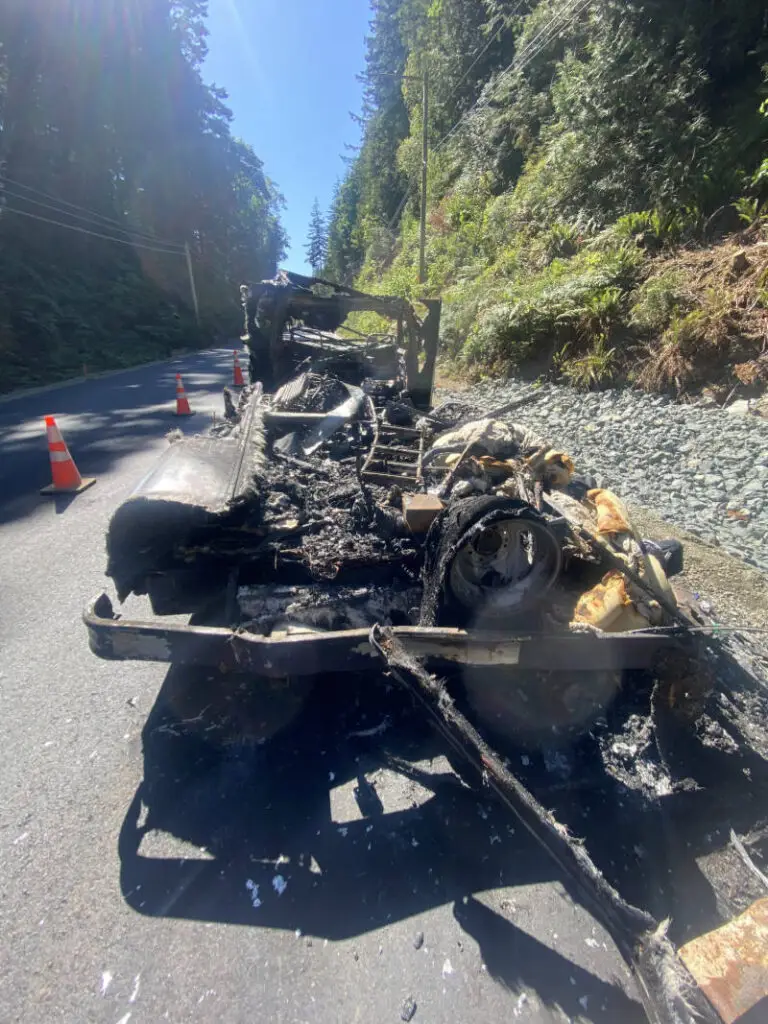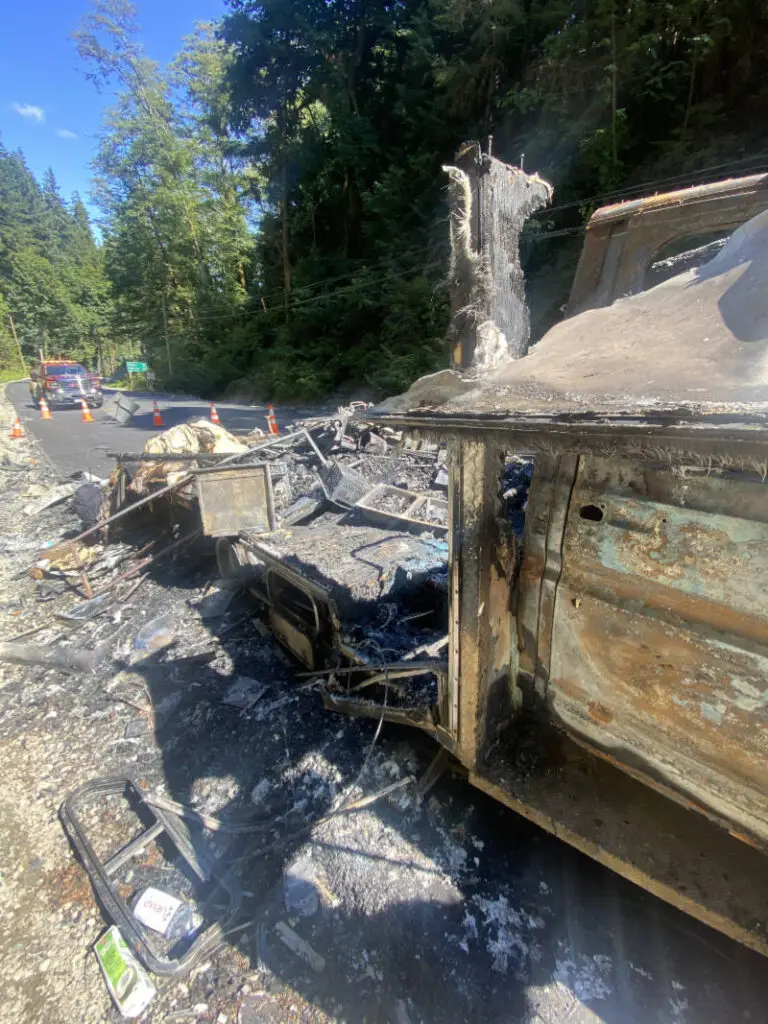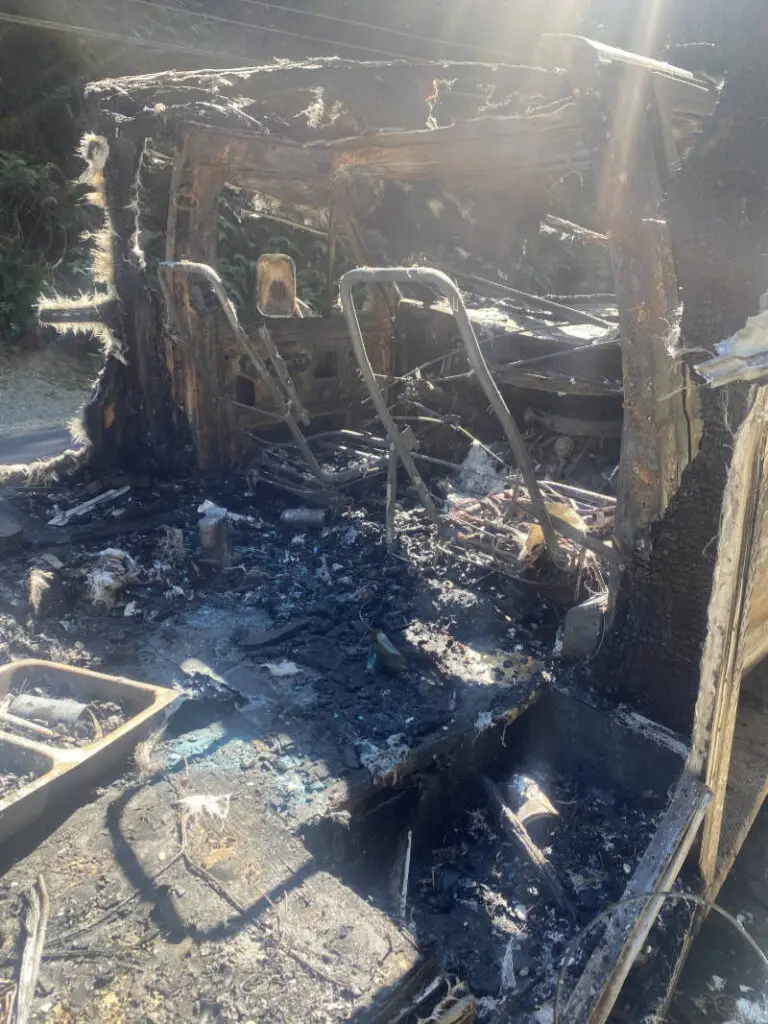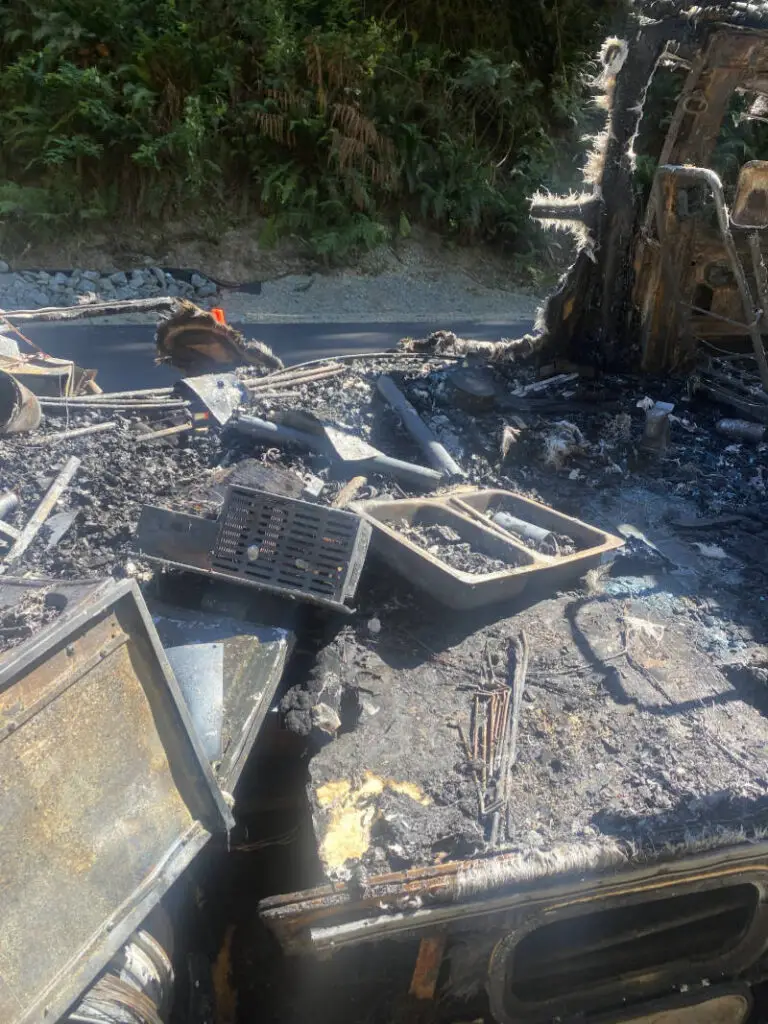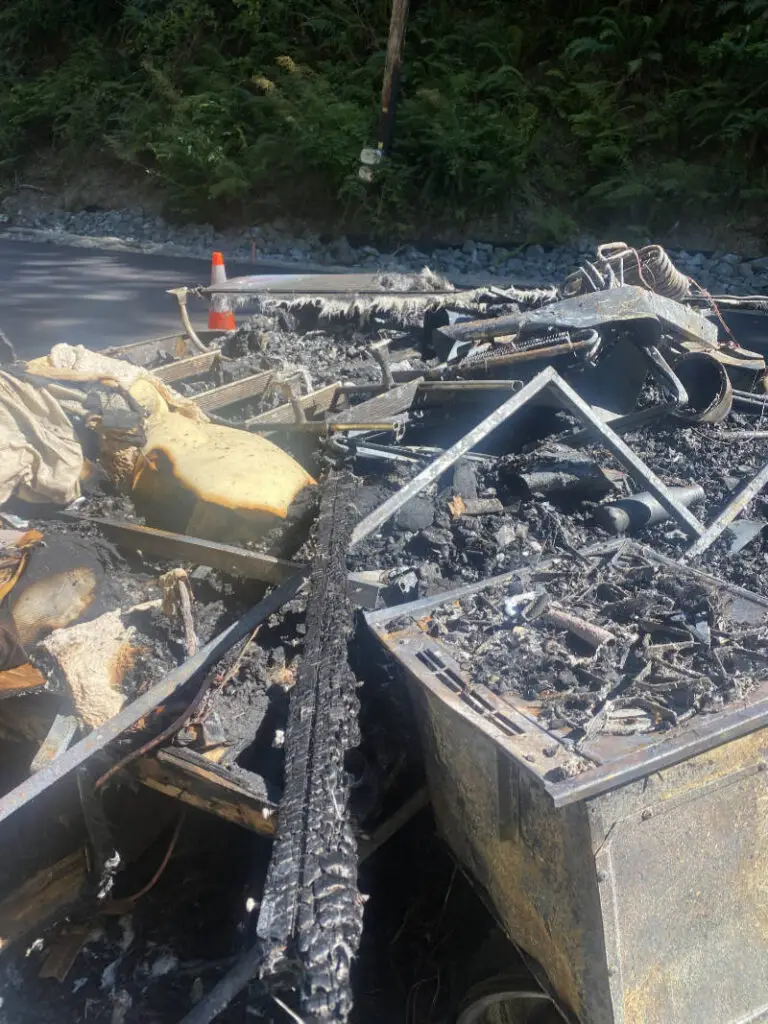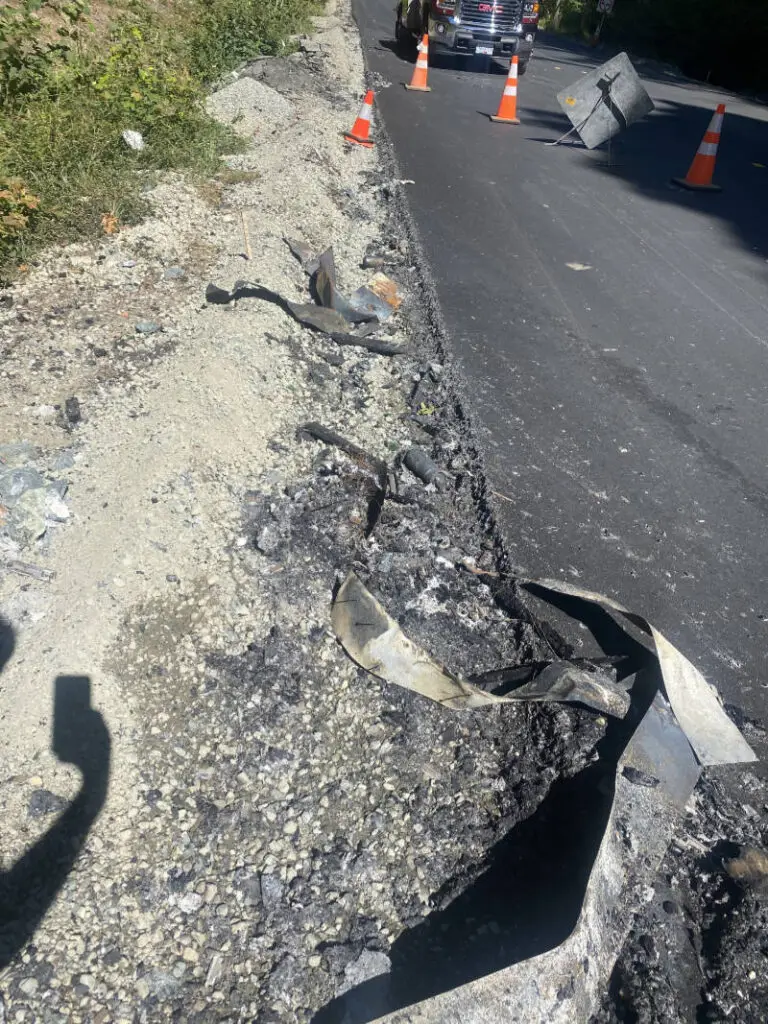It is not just that tow operators are not getting paid for towing abandoned RVs, travel trailers, boats, and cars, it is that the expensive responsibility of disposing them also falls on the towing industry when there is currently no hope of collecting payment.
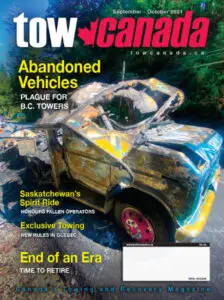
by Sarah Bruce
In late July, Sooke Towing was called about an RV that burned down to the chassis and was left in an active lane between Victoria and Port Renfrew. The owner was eventually tracked down, but they had been arrested (for reasons unknown), were unlicensed, and had no insurance on the vehicle.
Without insurance, the Insurance Corporation of British Columbia (ICBC) would not pay for the removal, so the RV sat on the road, requiring highway flaggers to direct traffic until it could be determined what to do with it.
“Sooke Towing declined because no one could say who would pay for the cleanup,” said Dave LeQuesne, owner/operator of Westshore Towing. “Mark, from Sooke Towing, called me and told me what was going on, and I told him I wouldn’t be going out there either, unless someone was going to be paying for it.” Mark and Dave went back and forth about what to do about it, and then Dave drove out the next day to take pictures. The Vancouver Island Professional Towing Association, of which Dave, along with several other towing companies, is a member, has been trying to communicate with Premier John Horgan and Mike Farnsworth, minister of public safety and solicitor general of B.C., about abandoned vehicles, and Dave thought the pictures would help illustrate the issue.
Ultimately, the burned-out RV sat for almost 24 hours before anyone would take responsibility for it, causing a disruption in traffic and incurring fees for the flaggers involved with directing traffic. By the time the vehicle was recovered, fluids from the RV, including the septic tank, flowed out, downhill, impacting the environment.
“The owner of the vehicle didn’t have any insurance, so ICBC couldn’t tell us if they would cover anybody to go out there to pick it up,” Dave explained. “Finally, Emcon, the contractor for the ministry of highways and infrastructure, said they’d pick up the bill to go out there and clean it up. So I said, ‘well, call Mark at Sooke Towing first, it’s his area, to see if he wants to do it.’ They said he didn’t, but I called him to confirm. He said he didn’t want to do it because he didn’t have the manpower by the specific time; they wanted it done by six o’clock.”
So, Westshore Towing took the job, drove up there, tarped it up, put it on the deck truck, and made arrangements for it to go to Schnitzer Steel the following morning. The upside of the recovery was that, because it was burned down to the chassis, it could go straight away to the steel scrapyard for disposal. “It was actually lucky that it was so badly burned; it was a complete loss,” Don Affleck, owner/operator of Peninsula Towing, said. “If it’s a situation where it’s not sure whether it is a complete loss or not, then we have to store it for the police, and this is where we run into problems. We could potentially be responsible for the flaggers, all the clean up, any hazmat, anything that’s gone into the ditch as far as coolants, septic, etc., and we don’t know what’s inside of it or what they’re carrying.”
More often than not, tow operators don’t get lucky, and the abandoned vehicle is in such a terrible state that someone has to clean it up before the vehicle can be scrapped. “It’s not just about who pays for the tow,” Don said. “It’s about storing that vehicle, cleaning it out, dealing with the environmental impacts, and ultimately, disposing of the vehicle, which can be costly, depending on the material.”
“I have one sitting in the Walmart parking lot right now, and nobody wants to pay to get rid of it,” said Dave. “They keep calling the police to have it removed because it’s uninsured and I have to keep saying, ‘no, we aren’t towing it unless someone is paying to dispose of it,’ and that can be anywhere from $2,000 to $9,000 depending on what’s inside of it and what you’re dealing with.” “Prior to the 90s, they used asbestos in the insulation lining of travel trailers,” Don said, explaining the towing industry faces not only a financial burden but also potential health concerns.
According to Dave and Don, the situation has only become worse since the pandemic hit. “A lot of people lost their homes and jobs, and where else are you going to live?” Dave asked. “People are resorting to an RV if they can’t find a place to live. As you talk to towers throughout B.C., you can see this isn’t just bound to Vancouver Island, it’s all across the province.”
It has been nearly two years since Don and Dave met with Premier Horgan and Minister Farnsworth. “We did meet with the premier and his dignitaries and gave them a solution,” Dave said. “But because of COVID, we haven’t been able to meet with them again. Since then, the problem has compounded and it’s getting worse because there is more homelessness and everyone is buying these motorhomes that have been sitting for a number of years and putting them on the road, sometimes without the proper insurance or mechanical fixes. Then they leave them at the side of the road or in a parking lot [when they are no longer usable] and now the tower has to come and clean it up.”
The suggestion put forward was to attach a levy to the sale of all RVs, travel trailers, boats, and vehicles to cover the disposal cost at the end-of-life, similar to what is charged at the purchase of electronics, technology, tires, batteries, and even plastic bottles. The money from the levy could then be used to pay tow operators for the recovery, towing, storage, and disposal of these vehicles.
“The premier thought it was a good idea and he left it with his dignitaries,” Dave said. “But then COVID hit and we haven’t been able to get back to them to discuss, and every time we send an email, we don’t hear back from them because there are so many other fires to put out in the province right now.
“We are trying to stop a protest because some towers would like to round up all the RVs in their yard and tow them down to the parliament buildings, but that’s not the way to deal with things. So if we can get towers throughout B.C. to start hammering the government with their concerns, then perhaps we can get something done.”
In the meantime, Dave and Don, and other members of the Vancouver Island Professional Towing Association, are refusing to tow abandoned vehicles, and when they must, they are refusing to take possession, which would mean getting stuck with the responsibility of disposing of it.
“We’ve said, we’ll tow anywhere, to fulfill our obligation to the police, and I do it at no cost, locally,” Don said. “But I will not take possession of them and I won’t be responsible for disposal.” “We won’t tow them unless someone tells us who is paying for the disposal,” said Dave. “That’s everything—the towing, the storage, the biohazard clean up, the black/grey tank pump-outs, and any garbage inside the vehicle that needs to be removed—sometimes it’s so bad you need to hire a hazmat team to come in and do it.”
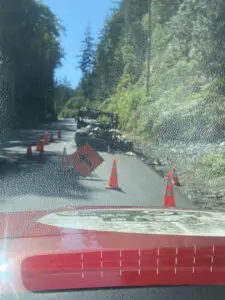
This temporary solution, unfortunately, leads to another issue, as Don explained: “Now we have this bad scene on our hands because guys are like, ‘tow truck guys aren’t cleaning this up and what’s wrong with them,’ but actually we’re not getting paid for it. Already, guys don’t slow down and move over, so now we are out there not getting paid, almost getting killed, and handling hazardous material, for what?
“If we can get just one authority to say we need to have a disposal fee on RVs, boats, travel trailers, and, for that matter, all cars, people wouldn’t be leaving things in the forest—there might even be towers going out there to get them to clean up the environment.”
